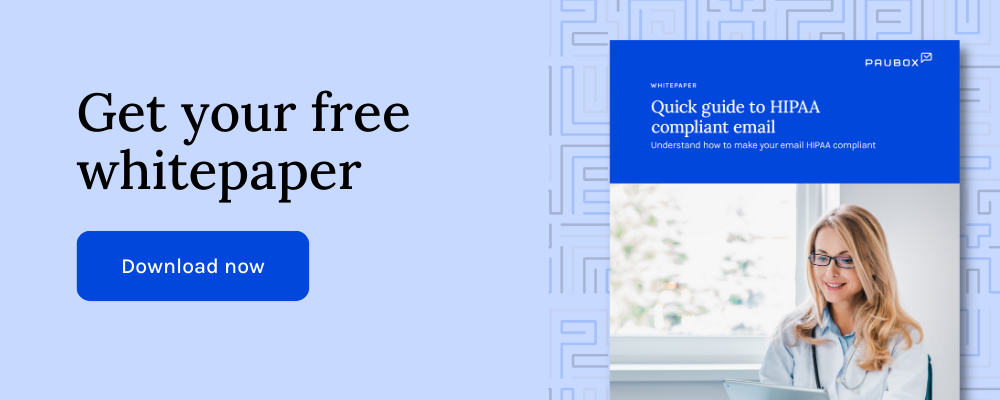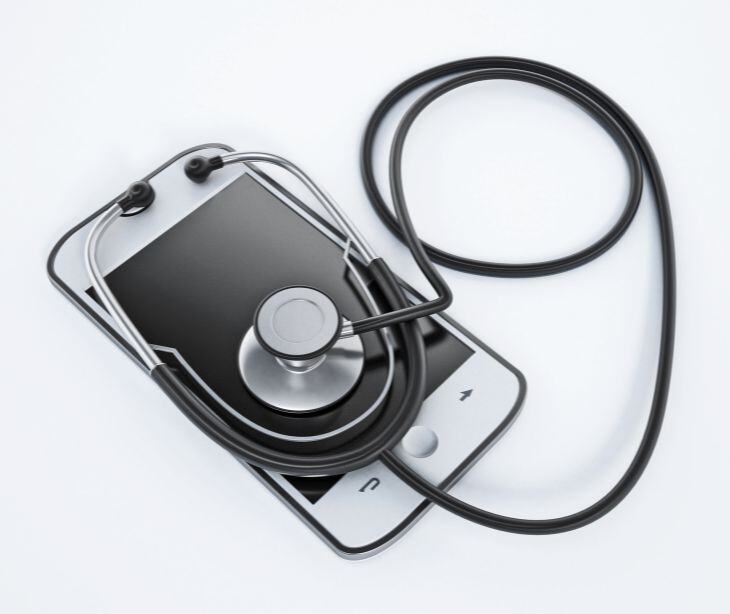
HIPAA compliant texting is the secure transmission of protected health information (PHI) through text messages. It adheres to a set of technical safeguards and procedural requirements to ensure the confidentiality, integrity, and availability of patient information.
Read also:
- The guide to HIPAA compliant text messaging
- How HIPAA defines confidentiality, integrity, and availability of ePHI
Understanding the risks of unsecured texting
Traditional SMS messaging lacks the security measures to safeguard ePHI. Text messages can be easily intercepted, forwarded to unintended recipients, and stored indefinitely on telecommunication providers' servers. Additionally, senders cannot reliably authenticate the identity of the recipient, leading to the potential for messages being sent to the wrong person. Studies have shown that 38% of people who text have inadvertently sent a message to the wrong individual. These vulnerabilities put healthcare organizations at risk of costly HIPAA violations, which can result in fines of up to $50,000 for a single infraction and escalate to $1.5 million in a single year for repeated offenses. Beyond the financial implications, the reputational damage and loss of patient trust can be difficult for any healthcare provider.
Benefits of HIPAA compliant texting
Enhanced communication efficiency
HIPAA compliant texting allows for instant and real-time communication, enabling healthcare professionals to quickly exchange critical information. This eliminates the delays associated with traditional communication methods such as phone calls and voicemails.
Improved care coordination
With HIPAA compliant texting, healthcare professionals can easily collaborate and share patient information securely. This ensures that all members of the care team are well-informed about the patient's condition, treatment plan, and any updates or changes.
Streamlined workflow
HIPAA compliant texting platforms are designed to integrate seamlessly with existing clinical workflows. Healthcare professionals can send and receive messages directly within their existing electronic health record (EHR) systems or other clinical applications.
Secure and encrypted communication
HIPAA compliant texting platforms utilize encryption protocols to ensure that messages are transmitted securely and cannot be intercepted or accessed by unauthorized individuals. This safeguards sensitive patient data, such as medical history, test results, and treatment plans, from potential breaches or unauthorized disclosure.
Increased patient satisfaction
HIPAA compliant texting allows patients to easily communicate with their healthcare providers, ask questions, request medication refills, or discuss any concerns they may have. The convenience and accessibility of HIPAA compliant texting improve patient engagement and satisfaction, ultimately leading to a higher standard of care.
Choosing the right HIPAA compliant texting solution
When selecting a HIPAA compliant texting solution, it is necessary to consider certain factors to ensure its effectiveness and suitability for your healthcare organization. Some key considerations include:
Compliance with HIPAA regulations
Ensure that the texting solution adheres to all HIPAA regulations and requirements. This includes technical safeguards, administrative processes, and physical security measures to protect patient information.
Ease of use and integration
Choose a user-friendly texting solution that integrates seamlessly with your existing systems, such as EHRs or practice management software. This ensures a smooth transition and minimal disruption to your workflow.
Security features
Look for features such as encryption, multi-factor authentication, and secure storage of messages to ensure the highest level of security for patient data.
Audit and reporting capabilities
A texting solution should provide audit logs and reporting features to track and monitor communication activities. This helps maintain compliance and identify potential security breaches.
Training and support
Select a texting solution provider that offers training and ongoing support to ensure that your staff is well-equipped to use the platform effectively and address any technical issues or concerns.
Paubox’s solution
At Paubox, we recognize the necessity of secure communication in healthcare, which is why we’ve developed a HIPAA compliant texting solution that makes it easier for providers to connect with their patients. Our service eliminates the need for third-party apps or logins, allowing patients to receive secure, encrypted text messages directly on their phones. This approach improves patient engagement, ensuring they stay informed about appointments, test results, and other important updates, while also reducing no-show rates and enhancing overall care coordination.
We’ve built our texting solution to work across both iPhone and Android devices, ensuring broad accessibility. Our focus is on maintaining the highest standards of privacy and security, applying the same encryption methods that power our email services. With Paubox Texting, healthcare providers can confidently manage their communication needs, knowing that all messages comply with HIPAA regulations, and safeguarding patient information without the risk of data breaches.
Learn more: The guide to HIPAA compliant text messaging
FAQs
What makes a text HIPAA compliant?
An email is HIPAA compliant if it includes encryption, secure access controls, and audit trails. So, providers must use a HIPAA compliant texting platform, like Paubox, to protect patients’ PHI.
Is WhatsApp HIPAA compliant?
Even though all messages are encrypted, WhatsApp is not HIPAA compliant because it lacks other capabilities covered entities and business associates need to comply with the HIPAA Security Rule.
Does my phone need to be HIPAA compliant?
The HIPAA Rules generally do not protect the privacy or security of your health information when it is accessed through or stored on your cell phones or tablets.
What features make a texting platform HIPAA compliant?
- Encryption to protect data during transmission
- Secure user authentication to verify the identity of users
- Access controls to ensure only authorized individuals can access PHI
- Audit logs to track and record all communications involving PHI
- Data backup and disaster recovery plans
- Business associate agreement (BAA) between the platform provider and healthcare entity
See also: HIPAA Compliant Email: The Definitive Guide
Read more:
- Texting tools and HIPAA compliance: The ultimate guide
- How to document consent for text messaging and email communication
Subscribe to Paubox Weekly
Every Friday we'll bring you the most important news from Paubox. Our aim is to make you smarter, faster.




